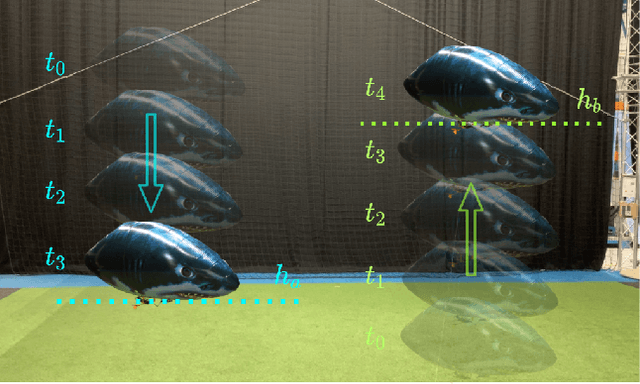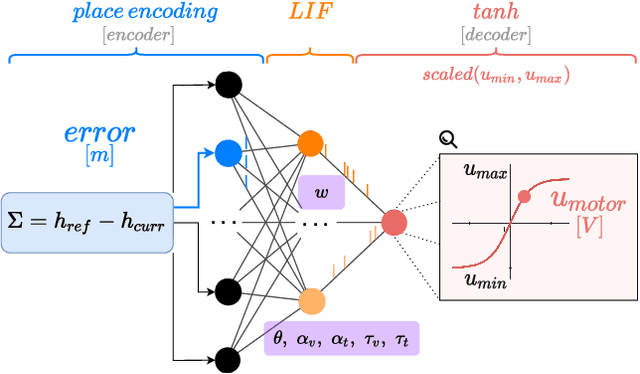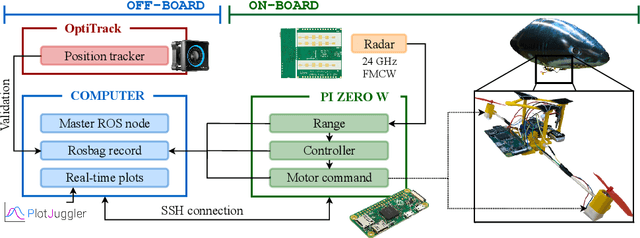Evolved neuromorphic radar-based altitude controller for an autonomous open-source blimp
Paper and Code
Oct 01, 2021



Robotic airships offer significant advantages in terms of safety, mobility, and extended flight times. However, their highly restrictive weight constraints pose a major challenge regarding the available computational power to perform the required control tasks. Spiking neural networks (SNNs) are a promising research direction for addressing this problem. By mimicking the biological process for transferring information between neurons using spikes or impulses, they allow for low power consumption and asynchronous event-driven processing. In this paper, we propose an evolved altitude controller based on a SNN for a robotic airship which relies solely on the sensory feedback provided by an airborne radar. Starting from the design of a lightweight, low-cost, open-source airship, we also present a SNN-based controller architecture, an evolutionary framework for training the network in a simulated environment, and a control scheme for ameliorating the gap with reality. The system's performance is evaluated through real-world experiments, demonstrating the advantages of our approach by comparing it with an artificial neural network and a linear controller. The results show an accurate tracking of the altitude command with an efficient control effort.
 Add to Chrome
Add to Chrome Add to Firefox
Add to Firefox Add to Edge
Add to Edge